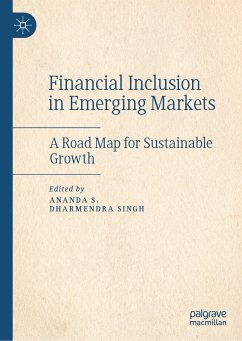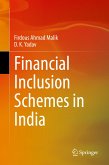This book discusses ideas for stakeholders to develop strategies for the access and use of financial products and services such as deposits, loans, and fund transfer mechanism, insurance, payment services, and intermediaries, distribution channels at economical prices in order to cater to the needs of the poor and underprivileged people. The level of economic activities determines the growth and sustainability of an economy. The availability of financial resources, investment, demand, and supply of goods and services leads to the sustainable growth of an economy.
Financial inclusion ensures ease of access, availability, and usage of the formal financial system, product, and services for all members, especially of an emerging economy. The book provides conceptual and practical ideas from the practitioners, best practices from the experts, and empirical views from the researchers to frame policies, guidelines, strategic planning, and designing initiatives and activities and also to set directions for future research.
Dr. Ananda Suryanarayana is currently Director of Postgraduate Studies and Research Department at College of Banking & Financial Studies, Oman. He has 29 years of expertise in the area of management education. He has also served in Mutual Fund Industry for about four years.
Dr. Dharmendra Singh is teaching at Modern College of Business and Science (MCBS), Oman. He has more than 19 years of experience in teaching Finance and Accounting courses.
Dieser Download kann aus rechtlichen Gründen nur mit Rechnungsadresse in A, B, BG, CY, CZ, D, DK, EW, E, FIN, F, GR, HR, H, IRL, I, LT, L, LR, M, NL, PL, P, R, S, SLO, SK ausgeliefert werden.









